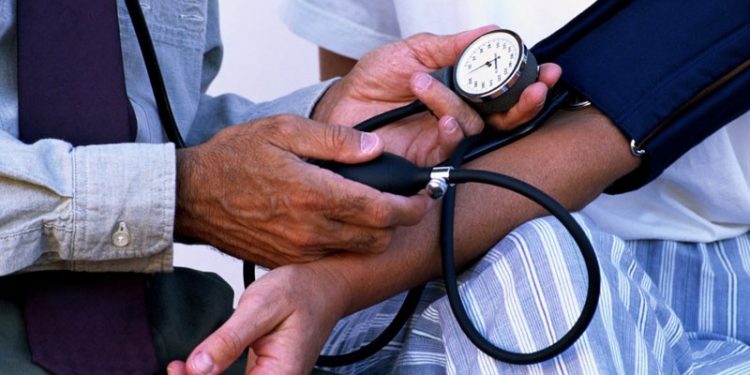Medications to treat high blood pressure (BP) do not affect outcomes among patients hospitalised with COVID-19, researchers have claimed.
The study, published in The Lancet Respiratory Medicine journal, shows that there is no risk for patients continuing these medications while hospitalized for COVID-19.
“Our trial results importantly show that these medications can be safely continued for patients hospitalized with COVID-19,” said a researcher, Julio A. Chirinos, MD, PhD, Associate Professor at the University of Pennsylvania in the US.
“Observational studies were rapidly done, but randomized trials are important to set up a definitive answer regarding the potential impact of these commonly used blood pressure medications in the setting of COVID-19,” Chirinos added.
For the study, the investigators enrolled 152 participants across several countries.
As part of the REPLACE COVID trial, investigators examined whether ACE inhibitors (ACEIs) or Angiotensin Receptor Blockers (ARBs) — two classes of medications to treat high blood pressure — could help mitigate complications or lead to more severe symptoms.
According to the Centers for Disease Control and Prevention, more than 49 million US adults take medication to treat hypertension, and among those, about 83 per cent (41 million) take an ACEI or ARB.
Investigators developed an innovative global rank score to classify patient outcomes based on four factors: time to death, length of time supported by mechanical ventilation or extracorporeal membrane oxygenation (ECMO), length of time on renal replacement therapy, and a modified sequential organ failure assessment score.
Through analyzing the patient outcome data, the team found discontinuation of ACEIs and ARBs compared with continuation of these medications had no effect on the global rank score.
This evidence supports international society recommendations for continuing ACEI and ARB therapy in patients admitted to the hospital with COVID, unless there is a clear, alternate medical issue with ongoing therapy.
IANS






































